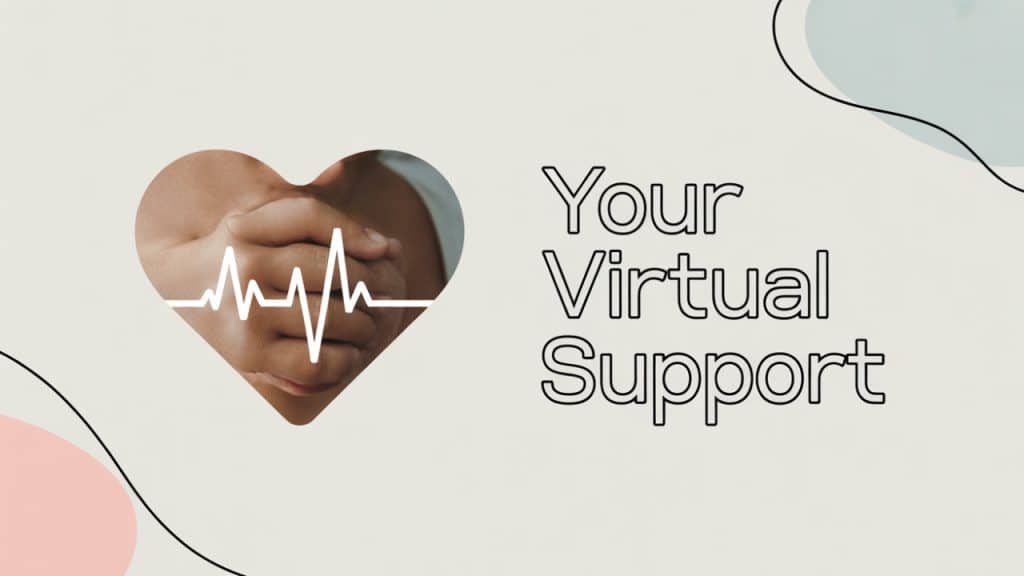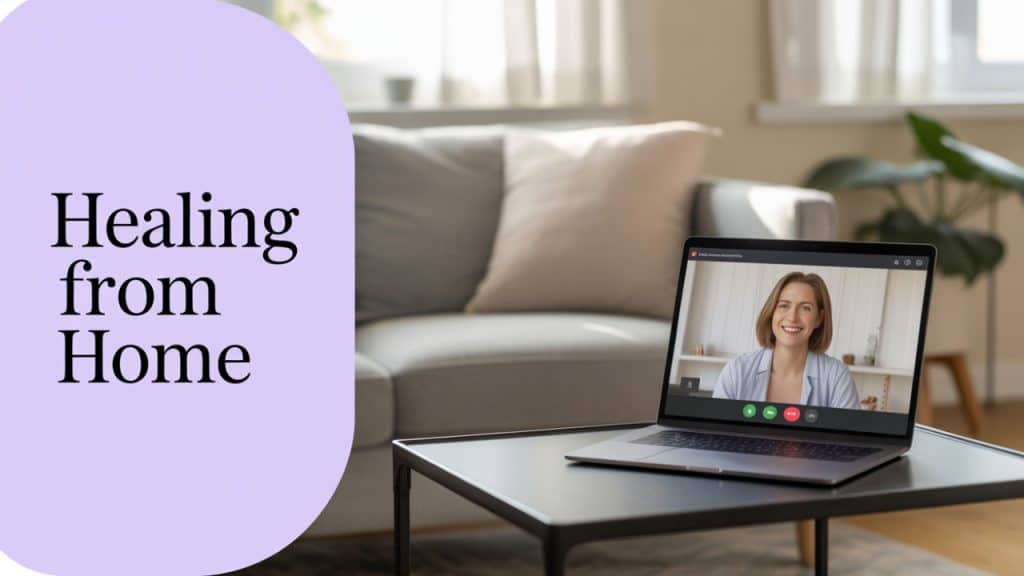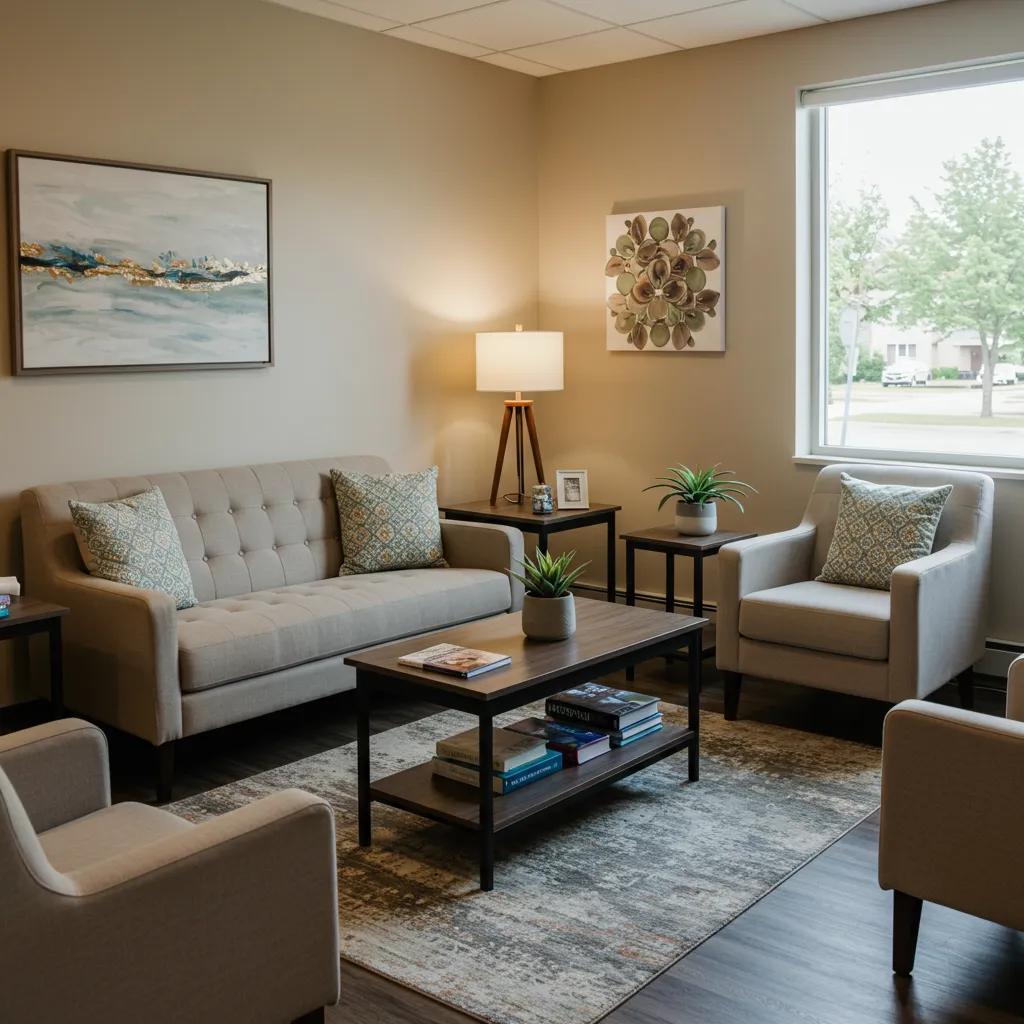Why More People in Laguna Hills Are Choosing Virtual IOP for Flexible Mental Health and Addiction Recovery
Over the past year, Virtual Intensive Outpatient Program (Virtual IOP) enrollment in Laguna Hills has surged as residents discover an accessible, evidence-based path to recovery that fits into busy lives. This comprehensive guide explains what Virtual IOP is, how sessions are structured, and why convenience, privacy, and clinical effectiveness are driving this trend. You’ll learn which conditions and demographics benefit most, how it compares to in-person and residential options, strategies for insurance and affordability, what makes Compassion Recovery Centers’ veteran-owned approach unique, real success stories, and the exact steps to get started today. By unpacking each element—from therapeutic modalities like CBT and DBT to secure telehealth platforms—you’ll gain clarity and confidence in choosing Virtual IOP for yourself or a loved one, building trust in a compassionate, trauma-informed model of care.
What Is Virtual IOP and How Does It Work in Laguna Hills?
A Virtual Intensive Outpatient Program delivers structured mental health and addiction treatment through secure telehealth platforms, combining individual, group, and family therapy to promote recovery from home. It replicates the clinical rigor of traditional IOP by scheduling multiple weekly sessions over 6–8 weeks, ensuring continuity of care without geographic or transportation barriers. In Laguna Hills, licensed therapists guide participants through interactive video meetings, digital skill-building exercises, and personalized check-ins, creating a cohesive treatment experience that seamlessly transitions into daily routines. Understanding these core components clarifies how therapy sessions, technology safeguards, and clinical protocols work together to support sustainable progress.
What Defines a Virtual Intensive Outpatient Program?
A Virtual IOP is a hybrid treatment model offering intensive therapy without residential stays, designed to treat moderate to severe mental health conditions and substance use disorders.
- It structures care into three to five weekly sessions, each lasting 60–90 minutes.
- It integrates individual counseling, evidence-based group workshops, and optional family involvement.
- It uses licensed clinicians, certified counselors, and peer support specialists in a coordinated care team.
This definition highlights the program’s framework and leads into how those sessions are specifically arranged for maximum impact.

How Are Therapy Sessions Structured in Virtual IOP?
Virtual IOP arranges therapy into three main formats—individual, group, and family—to address cognitive, emotional, and relational needs.
- Individual Therapy delivers personalized assessments, goal setting, and coping-skill training in one-on-one video calls.
- Group Therapy brings together peers to practice social skills, share experiences, and build accountability under professional guidance.
- Family Therapy invites loved ones to participate in sessions that strengthen communication, set healthy boundaries, and foster support networks.
These session types ensure a holistic approach to recovery and prepare participants for the secure technologies that protect their privacy.
What Technologies Ensure Privacy and Security in Virtual IOP?
Virtual IOP employs HIPAA-compliant telehealth platforms with end-to-end encryption, multi-factor authentication, and private meeting rooms to safeguard confidential discussions.
| Platform Feature | Security Measure | Benefit |
|---|---|---|
| Video Encryption | AES-256 end-to-end encryption | Protects session data from unauthorized access |
| User Authentication | Multi-factor login verification | Confirms identity of participants |
| Secure Data Storage | Encrypted cloud servers | Preserves treatment records with privacy |
| Virtual Waiting Rooms | Locked meeting links | Prevents uninvited attendees |
These controls build trust in online care, setting the stage for exploring the key benefits that Laguna Hills residents value most.
What Are the Key Benefits of Choosing Virtual IOP in Laguna Hills?
Virtual IOP offers unmatched convenience, accessibility, privacy, and proven clinical outcomes by combining telehealth technology with structured, evidence-based therapies. It removes geographic and scheduling barriers while maintaining intensive contact with clinicians, allowing participants to balance treatment with work, school, or family responsibilities. As we examine each advantage, you’ll see how Virtual IOP transforms recovery into a flexible, supportive journey tailored to modern lifestyles.
How Does Virtual IOP Offer Convenience and Flexibility for Daily Life?
Virtual IOP enables clients to join therapy from any location with internet access, eliminating commute times and rigid schedules.
- Participants can attend morning, midday, or evening sessions to fit work or school commitments.
- Treatment stays on track even during travel or relocation within California.
- Online portals allow homework assignments and skill-practice reminders on mobile devices.
By adapting to real-world demands, Virtual IOP reduces treatment drop-out rates and sets the foundation for broader accessibility benefits.
In What Ways Does Virtual IOP Improve Accessibility and Reduce Barriers?
Delivering care online removes geographic constraints and transportation hurdles, making recovery services reachable for anyone in Laguna Hills and beyond.
- Rural or underserved communities gain equal access to licensed specialists.
- Public stigma diminishes when therapy happens in a private setting.
- Participants with mobility challenges or caregiving duties can engage fully without leaving home.
These accessibility gains enhance treatment adherence and support a comfortable environment, which we’ll explore next when discussing privacy.
Why Is Privacy and Comfort Important in Virtual IOP Treatment?
Receiving therapy in a familiar environment encourages openness, reduces anxiety, and fosters deeper insight into personal challenges.
- Participants control their surroundings, choosing quiet, confidential spaces.
- Exposure to triggers is minimized compared to shared clinical settings.
- Comfort with technology can empower those who avoid in-person groups.
A sense of safety leads to better therapeutic engagement, paving the way for the effective delivery of evidence-based modalities like CBT and DBT in an online format.

How Effective Is Evidence-Based Care Like CBT and DBT in Virtual IOP?
Virtual IOP integrates Cognitive Behavioral Therapy (CBT) and Dialectical Behavior Therapy (DBT) with measurable outcomes matching in-person programs.
- CBT modules help identify and reframe negative thought patterns through digital worksheets and real-time feedback.
- DBT groups teach emotional regulation, distress tolerance, and interpersonal effectiveness via virtual role-plays.
- Relapse prevention planning uses interactive goal-tracking tools to monitor progress and adjust strategies.
Clinical trials and patient surveys confirm that remote delivery of these therapies yields significant reductions in symptoms of anxiety, depression, and substance misuse, guiding us to explore who benefits most from Virtual IOP in Laguna Hills.
Andersson, G., et al., “Internet-based cognitive behavior therapy for depression: a randomized controlled trial.” (2005)
[Effectiveness of CBT and DBT in Virtual Settings]
Research indicates that Cognitive Behavioral Therapy (CBT) and Dialectical Behavior Therapy (DBT) delivered via telehealth can be as effective as in-person therapy for treating mental health conditions like anxiety and depression. Studies show significant reductions in symptoms and improvements in overall well-being with these virtual modalities.
Who Can Benefit Most from Virtual IOP in Laguna Hills?
Virtual IOP serves a broad spectrum of individuals, including adults, teens, veterans, and those facing co-occurring disorders, by offering tailored levels of care without requiring residential stays. Its flexible structure adapts to various needs, ensuring each participant receives targeted support for lasting recovery.
Which Mental Health Conditions Are Treated Through Virtual IOP?
Virtual IOP effectively treats common and complex conditions by delivering specialized protocols for each diagnosis.
- Anxiety disorders: CBT-based exposure and coping skills
- Major depression: Behavioral activation and mood monitoring
- PTSD: Trauma-focused DBT and EMDR adjuncts
- Bipolar disorder: Mood stabilization education and relapse prevention
By addressing these conditions with proven interventions, Virtual IOP lays the groundwork for integrated addiction treatment in dual diagnosis cases.
How Does Virtual IOP Support Addiction and Dual Diagnosis Recovery?
Virtual IOP combines substance use counseling with mental health therapies to treat dual diagnoses in a coordinated model.
- Substance use modules include craving management and 12-step facilitation.
- Co-occurring protocols integrate DBT skills for emotional regulation in addiction contexts.
- Case managers coordinate medication-assisted treatment and monitor recovery metrics.
This integration promotes holistic healing, which is further personalized through specialized programming for specific populations.
What Specialized Programs Are Available for Teens and Veterans?
Compassion Recovery Centers offers dedicated Virtual IOP tracks that address unique developmental and cultural needs.
- Teen Program: Adolescent-focused CBT, family engagement, academic support strategies.
- Veteran Track: Trauma-informed care, military culture awareness, peer mentorship.
These specialized pathways ensure relevant content, fostering trust and effectiveness among younger clients and veterans coping with service-related challenges.

How Does Virtual IOP Compare to In-Person and Residential Treatment Options?
Virtual IOP provides a middle ground between standard outpatient therapy and full residential programs, offering intensive support without overnight stays. Participants benefit from structured schedules and professional oversight while living at home—unlike residential care—yet receive more frequent interventions than traditional outpatient models.
| Treatment Option | Session Frequency | Living Arrangements | Typical Investment |
|---|---|---|---|
| Virtual IOP | 3–5 remote sessions per week | Home-based | Lower than residential costs |
| In-Person IOP | 3–5 on-site sessions per week | Commuter basis | Moderate travel and time |
| Residential Treatment | 24/7 care for 30–90+ days | On-campus lodging | Highest cost for lodging and care |
This comparison clarifies Virtual IOP’s cost and logistical advantages over traditional IOP, and leads to when residential stays remain the optimal choice.
What Are the Advantages of Virtual IOP Over Traditional In-Person IOP?
Virtual IOP offers greater scheduling flexibility, eliminates commute stress, and reduces overall expenses while maintaining clinical intensity. Participants can attend evening groups after work, avoid traffic delays in Orange County, and reinvest saved time into self-care routines. These benefits make Virtual IOP an appealing alternative for busy professionals and parents.
When Is Residential Treatment More Appropriate Than Virtual IOP?
Residential programs are recommended for individuals requiring medical detox, constant monitoring due to severe co-occurring disorders, or those without a safe home environment. In such cases, 24/7 support, controlled surroundings, and on-site medical staff ensure stabilization before transitioning to less intensive outpatient or virtual models.
How Does Virtual IOP Fit Within the Continuum of Care?
Virtual IOP complements other levels of care by bridging the gap between Partial Hospitalization (PHP) and standard outpatient therapy. After a PHP withdrawal, clients step down to Virtual IOP to maintain structure and support. Upon completion, they transition to weekly outpatient or peer-driven groups, preserving momentum and reducing relapse risk.
How Can Laguna Hills Residents Navigate Insurance and Affordability for Virtual IOP?
Virtual IOP often qualifies for the same insurance benefits as in-person services, making it a cost-effective choice compared to residential care.
U.S. Department of Health & Human Services, “Telehealth.” (2024)
[Insurance Coverage for Telehealth Services]
Many insurance plans in California, including those from major providers like Anthem Blue Cross and Aetna, offer coverage for telehealth services, including Virtual IOP. This coverage often aligns with the benefits provided for in-person mental health treatment, making virtual options more accessible.
Which Insurance Plans Typically Cover Virtual IOP in California?
Major health plans in California generally include Virtual IOP under behavioral health benefits:
- Anthem Blue Cross
- Aetna
- Cigna
- UnitedHealthcare
- TRICARE for military families
- Medi-Cal for qualifying individuals
Coverage levels vary by plan, so members should confirm specific session limits and copay responsibilities before enrolling.
How Does Virtual IOP Offer Cost-Effective Treatment Compared to Residential Care?
By eliminating room, board, and on-site staffing expenses, Virtual IOP reduces overall program fees by 40–60% relative to residential costs. Participants retain the full intensity of therapy without paying for lodging, making sustained recovery more financially accessible.
What Steps Are Involved in Insurance Verification and Enrollment?
The insurance process for Virtual IOP involves three clear steps:
- A free consultation call to collect plan details.
- Verification of benefits with the insurer to determine coverage levels.
- Development of a personalized treatment agreement outlining any applicable copays or self-pay options.
Completing these steps ensures clarity around financial responsibilities and supports an uninterrupted treatment journey.
What Makes Compassion Recovery Centers’ Virtual IOP Unique in Laguna Hills?
Compassion Recovery Centers (CRC) differentiates its Virtual IOP through veteran-owned leadership, trauma-informed expertise, and an unwavering commitment to personalized, compassionate care. CRC blends clinical excellence with cultural sensitivity, creating a healing environment that resonates with diverse backgrounds and experiences.
How Does CRC’s Veteran-Owned and Trauma-Informed Care Enhance Treatment?
CRC’s veteran leadership brings first-hand understanding of military culture and trauma dynamics, shaping programs that respect discipline, camaraderie, and resilience. Trauma-informed clinicians use gentle pacing, safety planning, and empowerment techniques, ensuring participants feel heard, valued, and supported throughout their recovery.
What Evidence-Based Therapies Does CRC Incorporate in Virtual IOP?
CRC’s Virtual IOP integrates:
| Therapy Modality | Core Mechanism | Therapeutic Outcome |
|---|---|---|
| Cognitive Behavioral | Identifies and restructures thinking | Reduces anxiety and depression |
| Dialectical Behavior | Builds emotional regulation skills | Improves distress tolerance |
| Relapse Prevention | Teaches triggers and coping strategies | Lowers relapse risk |
| Mindfulness Practices | Enhances present-moment awareness | Reduces stress and craving intensity |
How Does CRC Support Patients Through Personalized and Compassionate Care?
Each CRC participant receives a customized treatment plan that aligns therapeutic goals with personal values, cultural factors, and scheduling needs. Dedicated case managers provide ongoing check-ins, adapt clinical modules in real time, and coordinate peer support groups, ensuring a sense of connection and accountability.
How Are Success Stories Demonstrating the Impact of Virtual IOP in Laguna Hills?
Real-life results confirm Virtual IOP’s transformative power. Participants report significant reductions in anxiety, sustained sobriety, and renewed relationships—evidence that remote programs can deliver life-changing outcomes when implemented with clinical rigor and empathy.
What Outcomes Have Patients Experienced Through Virtual IOP?
Graduates often achieve:
- 60–80% reduction in anxiety and depressive symptoms within eight weeks.
- 75% sustained abstinence from substances at six-month follow-up.
- Improved family communication and restored trust.
These metrics highlight Virtual IOP’s ability to foster lasting recovery journeys.
How Do Testimonials Reflect the Benefits of Virtual IOP for Different Conditions?
Participants share stories of overcoming panic attacks during virtual CBT sessions, mastering emotional regulation in DBT groups, and maintaining sobriety with relapse prevention coaching. Their diverse experiences underscore how tailored, evidence-based interventions address both mental health and addiction challenges.
How Can Prospective Patients Learn from Real Recovery Journeys?
Prospective participants can explore anonymized case summaries that outline initial symptoms, treatment strategies, and milestone achievements. Reading these recovery narratives fosters hope, clarifies expectations, and reinforces the sense that lasting change is within reach.
How Can You Get Started with Virtual IOP in Laguna Hills Today?
Launching a Virtual IOP journey involves a few straightforward steps, beginning with an assessment conversation and culminating in your first online session. CRC’s streamlined process ensures clarity, rapid enrollment, and timely access to care.
What Are the Initial Steps to Enroll in Virtual IOP?
Enrollment begins with a confidential intake call to evaluate your needs, review insurance coverage, and outline a personalized treatment plan. Within 24–48 hours, you’ll receive secure portal access, a session schedule, and instructions for technology setup.
How Can You Contact Compassion Recovery Centers for a Consultation?
You may reach out via CRC’s 24/7 phone line or secure online inquiry form to schedule a free, no-obligation consultation. Compassionate staff will guide you through the process, answer any questions, and ensure you feel supported from the very first interaction.
What Should You Expect During Your First Virtual IOP Session?
Your initial session includes orientation to the online platform, introductions to your clinical team, and collaborative goal-setting. You’ll receive an overview of upcoming modules, guidance on digital tools, and a warm welcome into a community invested in your success.
Participants leave this orientation equipped with clear next steps and a roadmap for recovery, seamlessly moving into the full Virtual IOP curriculum.
Recovery through Virtual IOP in Laguna Hills is both empowering and achievable. By blending clinical expertise, advanced telehealth technology, and compassionate support, this model meets the needs of modern individuals striving for mental health stability and addiction recovery. If you or a loved one seek flexible, evidence-based treatment that fits into daily life, Virtual IOP at Compassion Recovery Centers offers a proven path forward—one designed to honor your story, respect your schedule, and renew your hope for a healthier future.










